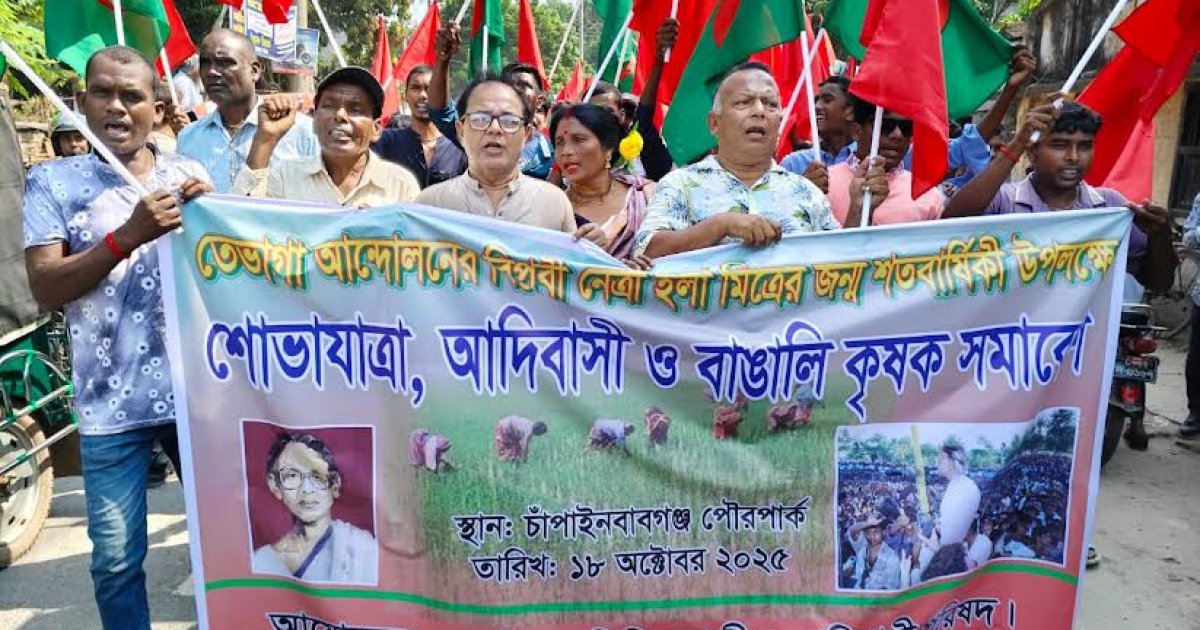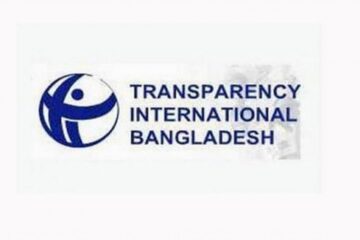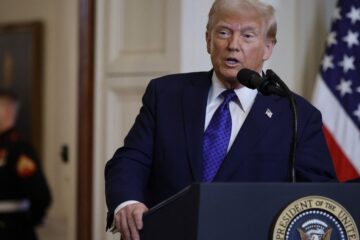The birth centenary of Ila Mitra, who led the peasant movement known as Tebhaga Movement in Nachole, was observed in Chapainawabganj on Saturday.
Marking the day, around 11:30am, a procession organized by the National Indigenous Council Chapainawabganj District Branch started from the Power House intersection in the district town and ended at the municipal park, parading the main streets of the town.
Tribal men and women from different areas joined the procession by dancing and singing to the beat of drums.
Speakers at the program discussed Ila Mitra’s contributions to peasants’ rights movements in the region.
The speakers said that Ila Mitra was a noble Bengali woman and a struggling farmer leader. She struggled to establish the rights of the exploited and deprived farmers of Bengal.
Mithusilak Murmu, president of the North Bengal Adivasi Forum, tribal researcher and writer Hingu Murmu, president of the district branch of the National Adivasi Parishad, Bichitra Tirki, and others were present.
Ila Mitra, the front-runner of the communist movement in the sub-continent in undivided Bengal and a friend to the cause of Bangladesh’s Liberation War in 1971, was born as Ila Sen in Kolkata on October 18, 1925.
Her forefathers are from Bagutia in Jhenidah. She became active in the communist movement in the early 1940s, when she was a student at Bethune College in Kolkata.
In 1945, after marrying Ramendra Mitra, Ila came to her husband’s village home in Krishna Gobindapur of Chapainawabganj and took a teaching job at a girls’ school.
Her husband was from a landlord family of Chapainawabganj and an active member of the Communist Party of India.
Ila later undertook the leadership of the Tebhaga movement and played a key role in the Santal rebellion as well as the Nachole uprising from 1946 to 1950. She was arrested in 1950 and while in police custody, she underwent brutal physical abuse and torture. She was sentenced to life imprisonment by the court.
In 1954, after she fell seriously ill in Rajshahi jail, the erstwhile government of Pakistan allowed her to go to Kolkata for treatment on parole. She never returned home and later resumed her political activities in Kolkata. She died in Kolkata on October 13, 2002.



